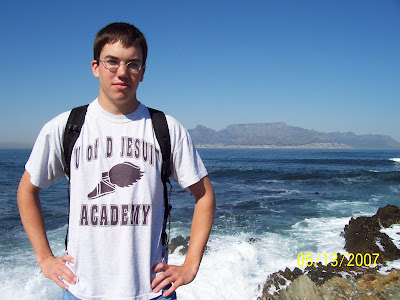
After more than two months in South Africa, I'll be back home on Monday (before that I am going to Kruger National Park for a couple of days). I'll probably blog some more after I get home, but this will be my last post while in Africa. I have had a tremendous time and have learned some things, most of them outside the classroom. If you didn't realize it already, Earth is a big place. There are many unique places where people have a completely different way of life from our own. Yet, fundamentally, most people want the same thing: to be surrounded by people who care about them. When we care, the world becomes a better place.
I would like to thank my family and all those who visited the blog over the past couple months. I hope everyone has a great summer.





















